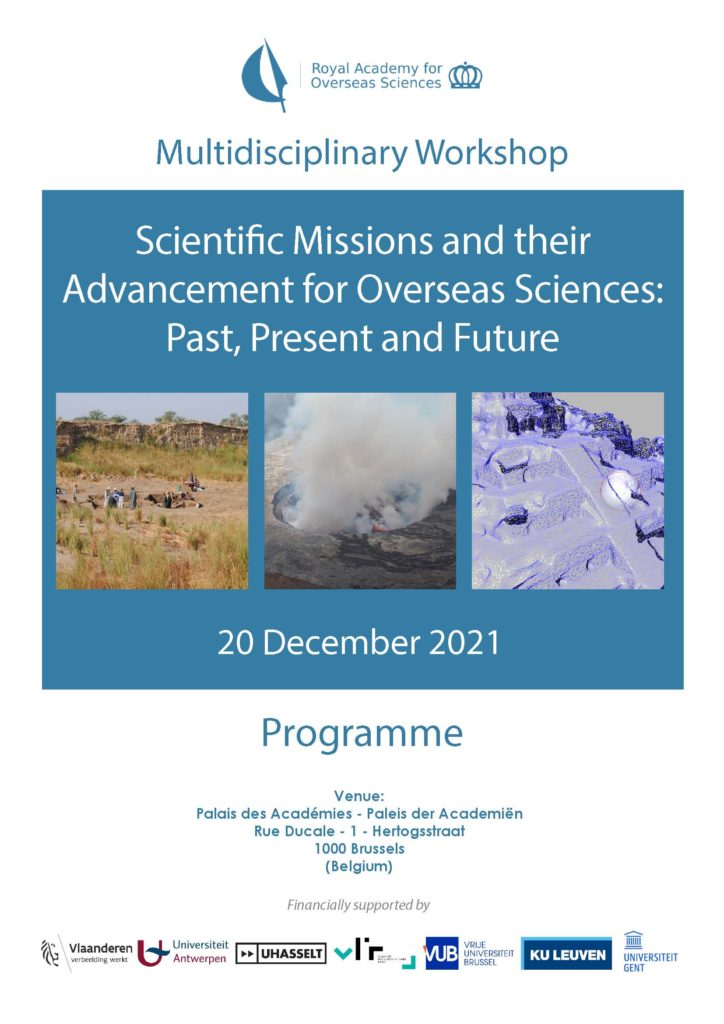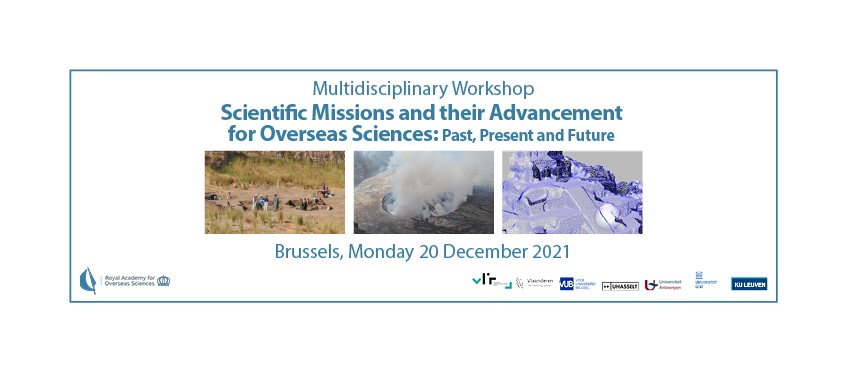Royal Academy for Overseas Sciences: Multidisciplinary Workshop
The Royal Academy for Overseas Sciences will organize its fourth Theme Day on Monday 20 December 2021 from 8.30 am until 5.20 pm (CET).
This edition will be organized as an online event. Register through the website.
During the day you will be able to join the online session (Zoom Webinar) by a link that will be sent to the registered participants a few days in advance and to participate in the question and answer sessions after the oral presentations and during the poster sessions.
AIMS OF THE THEME DAYS
The Royal Academy for Overseas Sciences will organize its fourth Theme Day on Monday 20 December 2021. The goal of this conference is first of all to allow young researchers under 40, who are involved in overseas countries, to meet each other, whatever their specialization, but also to let them know the Royal Academy for Overseas Sciences and its activities. This year, the Day will focus on one single topic which is relevant to the three sections of the Academy (human sciences, natural and medical sciences, technical sciences) and broad enough to welcome the research projects of a large number of young researchers.
AIMS OF THE 2021 THEME DAY
The topic of the 2021 Theme Day is “Scientific Missions and their Importance for the Advancement of Overseas Sciences: Past, Present and Future”.
The enhancement and dissemination of scientific results from overseas countries are part of the Academy’s main goals. Achieving scientific results often implies data collection on the spot during scientific missions. Therefore, the topic selected this year for the Theme Day will deal with the enhancement of the results achieved during recent missions or historical scientific expeditions as well as data and results sharing. The 2021 Theme Day will focus particularly on the exchange of qualified scientific data with the regions of origin where these data, specimens, materials or other objects were collected.
Young researchers who participated in field missions or young researchers who analysed data from overseas scientific missions are invited to present their findings.
- Organisation of field missions, including legal and regulatory aspects;
- Collaboration with local researchers and institutions;
- Valorisation and accessibility of results, including benefit sharing issues;
- Status of specimens and materials collected;
- …


